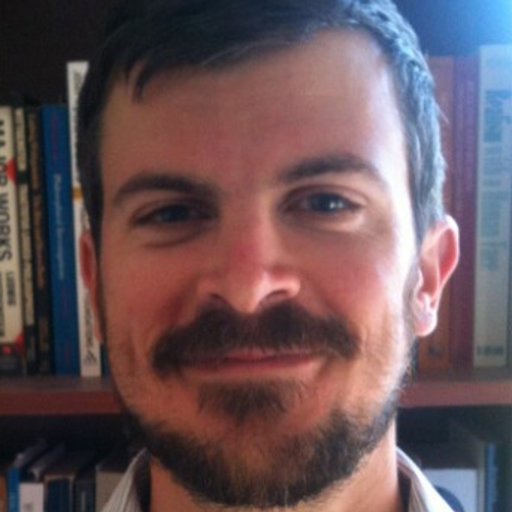
Research Interest
Military ethics, International Relations theory, alternative models of citizenship
He received his PhD in Political Science from Boston University. He also earned an MS in Ethics and Public Policy from Suffolk University. Prior to working at Nazarbayev, Dr. Smith taught at the School of Advanced Studies, University of Tyumen (Tyumen, Russia), and before that he was a full-time lecturer at Suffolk University’s (Boston, USA) Politics, Philosophy, and Economics program.
Dr. Smith’s published work focuses mostly on the history of ideas and military ethics. Over the past two years he has published two book projects. The first book, John Locke, Territory, and Transmigration (Routledge, 2021), is a historiographical account of early liberal theories of migration, specifically focusing on the philosophy of John Locke. This project, while located in the seventeenth century, touches on many contemporary issues: naturalization, colonization and the right to withdrawal, the plight of refugees, and territorial rights. It seeks to show that the so-called “right to exclude” was not really a feature of how early moderns thought about immigration policy and territorial rights. In fact, the populationist quality of Locke’s thought demanded that states actively recruit migrants. Dr. Smith’s second book, A History of Military Morals: Killing the Innocent (Brill, 2022), is a longue duree history of ideas that charts the evolution of arguments justifying the killing of noncombatants from the sixteenth to mid-twentieth centuries. As arguments for non-combatant immunity slowly gained acceptance, states and their militaries needed to explain and rationalize the killing of people they believed were innocent.
Dr. Smith’s current research projects touch on several interrelated themes: the relationship between early liberalism and institutions of bondage, slavery, and domination. He is particularly interested in the intersection of race and wage slavery, how early conceptions of race were infused into wage labor debates of the seventeenth century. He is working on a project that explores the tension between political authority and private sexual morality, and another project that explore the racialized origins of the notion of “enemy combatant.” Beyond these projects he has published numerous articles on a variety of subjects in leading journals: History of Political Thought, Journal of the History of Philosophy, History of European Ideas, Modern Intellectual History, Polity, Seventeenth Century, Journal of Military Ethics, Citizenship Studies, Locke Studies, Science and Society, Philosophy and Literature, and elsewhere.
· John Locke, Territory and Transmigration (Routledge, 2021)
· A History of Military Morals: Killing the Innocent (Brill, 2022)
· “Hobbes and the Political Economy of Population,” History of Political Economy [Q1] (accepted, forthcoming)
· “‘Marrying Her Husband’s Son’: Locke, the Politics of Sexual Morality, and the Case of Incest at the Church at Corinth,” Journal of the History of Philosophy [Q1] (accepted, forthcoming)
· “Assessing ‘Unnatural Lusts’: John Locke on the Permissibility of Male-Male Intimacy,” History of European Ideas (2022) [Q1] https://doi.org/10.1080/01916599.2022.2040046
· “Hannah Arendt on Anti-Black Racism, the Public Realm and Higher Education,” Educational Philosophy and Theory (2021) [Q1] https://doi.org/10.1080/00131857.2021.1978071
· “Josiah Child, Interest Rates, and John Locke’s ‘For a General Naturalization,’” Modern Intellectual History (2021). [Q1] https://doi.org/10.1017/S1479244321000494
· “Civilian Casualty Mitigation and the Rationalization of Killing,” Journal of Military Ethics 20:1 (2021) pp. 47-66. [Q1] https://doi.org/10.1080/15027570.2021.1949783
· “John Locke on Historical Injustice: The Redemptive Power of Contract,” Critical Review of International Social and Political Philosophy (2021). [Q1] https://doi.org/10.1080/13698230. 2021.1933760
· “John Locke and Samuel Rutherford on the Distance between Paternal Care and Fiduciary Trust,” Seventeenth Century 6 (2020); pp. 1039-1063. [Q1] https://doi.org/10.1080/0268117X. 2020.1854839
· “Citizenship without States: Rehabilitating Citizenship Discourse among the Anarchist Left,” Citizenship Studies 23:5 (2019); pp. 424-441. [Q1] https://doi.org/10.1080/13621025. 2019.1620688
· “Anarcho-Republicanism?: Hannah Arendt and the Federated Council System,” Science and Society 83:1 (2019). pp. 87-116. [Q3] https://doi.org/10.1521/siso.2019.83.1.87
· “One Body of People: Locke on Punishment, Native Land Rights, and the Protestant Evangelism of North America,” Locke Studies 18:1 (2018). pp. 1-40. https://doi.org/10.5206/ls.2018.423
· “Hands, not Lands: John Locke, Immigration, and the Great Art of Government,” History of Political Thought 39:3 (2018). pp. 465-490. [Q1]
· “Two Dogmas of the New War Thesis,” International Journal of Military History and Historiography 38 (2018). pp. 92-120. [Q4] https://doi.org/10.1163/24683302-03801004
· “Friends in the State of Nature: John Locke and the Formation of Security Communities,” Polity 49:3 (2017). pp. 379–407. [Q2] https://doi.org/10.1086/692294
· “On Revolution: Arendt, Locke, and Republican Revisionism,” History of Political Thought 36:3 (2015). pp. 560-579. [Q1]
· “Elements and Causes: Deducing the Present from the Past in Aldous Huxley’s Grey Eminence,” Aldous Huxley Annual 12/13 (2014). pp. 81-103.
· “Haec Fabula Docet: Anti-essentialism and Freedom in Huxley’s Brave New World,” Philosophy and Literature 35:2 (2011). pp. 348-359. [Q1] https://doi.org/10.1353/phl.2011.0017
PLS 426/526, Hannah Arendt on Power, Violence, and Revolution; PLS 329, Anarchism; PLS 327, Contemporary Political Theory; PLS 326, Modern Political Theory; PLS 120, Introduction to Political Theory. Click here to see the syllabi.



